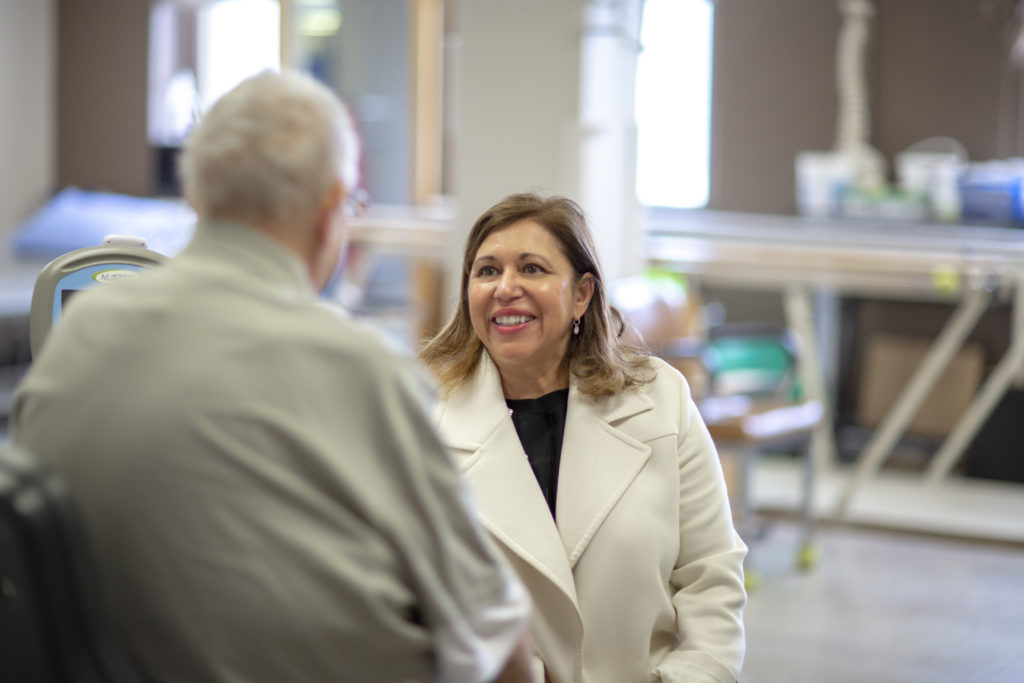
Helping people age better
We’re living longer than ever before, and that’s a good thing. But, are we aging well? Our researchers are exploring ways to help people live better, longer by tackling aging early on.
Getting a grip on frailty and aging
Can the strength of your grip reveal how well you’ll age? According to Dr. Darryl Leong and his colleagues at the Hamilton Health Sciences and McMaster University Population Health Research Institute, it can. They’re using data from 200,000 people in 25 countries around the world to better understand what factors affect longevity, but also how frailty can be avoided through early intervention. Hamilton is also home to the Canadian Longitudinal Study on Aging (CLSA) at McMaster University, where Parminder Raina and his team have established a robust data platform to better understand the biological, clinical, social, psychological, economic and environmental aspects of aging. The CLSA will follow over 50,000 Canadians between the ages of 45 and 85 for the next 20 years to gain insight in to why some people age well, and some others don’t.
By identifying how a young person’s eating and exercise habits, as well as their genes, affects their muscle strength and physical functioning down the line, we can learn how to delay, and even prevent, disease and frailty before they take hold.
Patient-driven aging research: A living lab
Despite their best efforts, frailty will remain a reality for some people as they grow older. In their “living laboratory”, Dr. Alexandra Papaioannou and her colleagues at the Geriatric Education and Research in Aging Sciences (GERAS) Centre at Hamilton Health Sciences’ St. Peter’s Hospital combine patient care with research to create innovative healthcare solutions based on the needs and lived experiences of their patients. Current projects include a new mobile app that will allow clinicians to quickly identify patients at risk for frailty; a wireless bed that uses artificial intelligence will anticipate patients’ needs; and a dance program for seniors to promote mobility and mental ability.
